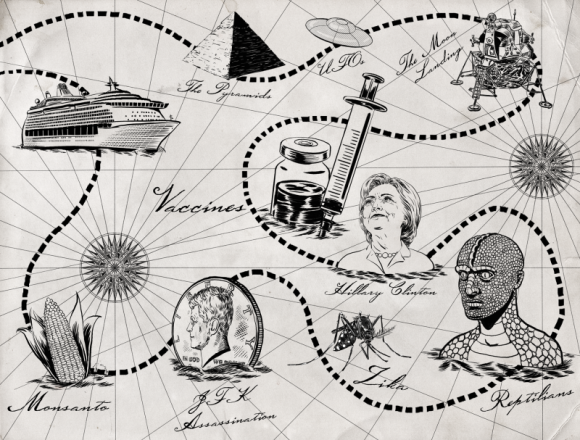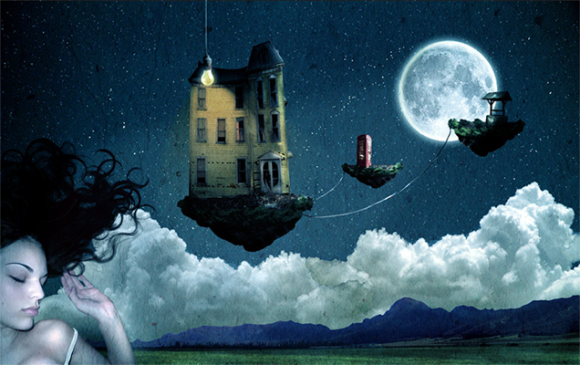It’s not the Love Boat. It’s the Conspira Sea…
A floating gathering of conspiracy theorists!
Just imagine being a fly on the wall for this one. It would certainly make for a great author’s people-watching tour…
From Jezebel,
Sail (Far) Away: At Sea with America’s Largest Floating Gathering of Conspiracy Theorists
“Once we’re in international waters, every woman on the ship gets to make love to whoever she wants,” Sean David Morton said, with a wink.
It was not entirely clear why we couldn’t have done that already, where we were, sitting immobile on the Ruby Princess, a “grand class” yacht moored in San Pedro, California, an oil refinery and port town just south of L.A. But we were making ready to sail away from our conventional ideas about laws, up to and including the laws of cause and effect.
Morton is a radio host, among other things. Here he was one of the lead organizers of Conspira Sea, the first annual sea cruise for conspiracy theorists. While the ship looped from San Pedro to Cabo San Lucas and back, some 100 of its passengers and I would be focused on uncharted waters, where nothing is as it seems. Before we docked again, two of them would end up following me around the ship, convinced I was a CIA plant.
Elsewhere aboard, people’s vacations were already exuberantly underway, the cigarette-browned casino bustling. Those of us in the conspiracy group were crammed into a dim, red-carpeted conference room in the bowels of Deck 6 to hear Morton, a Humpty Dumpty-shaped man with a chinstrap beard and an enormous, winking green ring, explain our mission.
“Conspiracy theorists are always right,” Morton told the room. He spoke with the jokey cadence and booming delivery of his profession; he’s basically Rush Limbaugh, if Rush Limbaugh claimed to have psychic powers (Morton practices a form of ESP known as “remote viewing,” which he says he learned from Nepalese monks). It was a bit of a pander, since the room was filled with conspiracy theorists….
For the rest, click here.
Share


